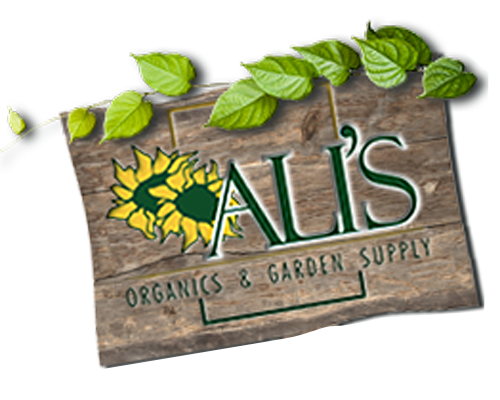Build Better Organic Garden Soil
Posted December 14, 2016

When we think of organic gardening we may think of the end result...The Vegetables! But, the backbone of organic gardens is the soil. Biologically active soils have a greater ability to withstand drought, heat, and stress, so doesn't it makes sense to build a better garden soil?
Add Organic Matter
1. Regular additions of compost provide slow-release nutrient that will improve yours soils water retention and suppress diseases.
2. Add well rotted manures for nitrogen. Manure has nutrients that are readily available to soil organisms and plants. Manure from clean feed farm animals is best.
3. Add rock powders and other slow-release sources of minerals, to correct mineral deficiencies in the soil.
4. Plant cover crops to build up soils fertility and improve its structure. Cover crops that have been "chopped and dropped" will provide readily available nutrients for our soil microbes and food crop plants. Slightly turn them in with a broad fork. Legumes such as clover, peas, and alfalfa are especially valuable crops, because they fix nitrogen from the atmosphere into forms available to crop plants.
Alternatives to Tillage
1. Build permanent beds and paths protects the soil structure from foot traffic to the paths avoiding soil compaction within the bed, which in turn means less tillage that disrupts the soil web. When it is necessary to loosen the soil, broad forks work well. Machine tillage should be done sparingly, and never pulverize your soil to a powder.
2. Cover soil with compost or mulch. These help retain moisture and protect against temperature extremes. Earthworms, microbes and other living organisms feed on layers breaking down the organic matter to make it available to plants.
Add Organic Fertilizers & Soil Amendments
1. Choose organic fertilizers to feed the earth rather then using synthetics, which microbes do not feed on. Microbes enjoy to feast on natural plant material as well as organic fertilizers.
2. Crab meal, shrimp meal and other "meal" type of fertilizers feed soil microbes creating a healthy environment for plants to grow. Which means, healthier plants, better production!
Addition of compost should be done every time you plant. You might say your vegetables "eat" the soil because organic matter breaks down so quickly. In our garden beds we add compost every time a new crop is planted by simply adding an inch or two and working it in slightly with a broad fork as well as mulching with compost often to suppress weeds and keep soil moisture in.
Feed the Earth, That Feeds the Plants, That Feeds You!



Comments (0 Comments)
There are no comments.
Post Comment